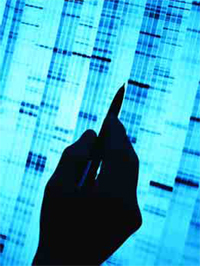The short answer is they may predispose an individual, but they are not everything. What's more, I think it's under-appreciated that genes normally only account for a limited portion of chronic disease risk. Genes ≠ Destiny. I've heard this described as "genes load the gun, but environment pulls the trigger" - what you eat being a big environmental factor. For MS it was at most 25% due to genetics. Chapter 9 in The China Study
"..what happens to people who migrate from one population to another, keeping their genes the same but changing their diets and their environment? The answer is the same as it was for cancer, heart disease and Type 2 diabetes. People acquire the risk of the population to which they move, especially if they move before their adolescent years. This tells us that this disease is more strongly related to environmental factors than it is to genes."The author has some strong arguments for how diet can have a big influence on risk of MS - the key points for me were:
- vitamin D deficiency greatly increases risk
- a typical "Western" style diet, high in animal products, is strong associated with higher disease risk
- there is some evidence for an association of disease risk with dairy consumption in particular
- other autoimmune diseases bear striking similarities
"Knowing the strength of the evidence against animal foods, cow's milk in particular, for both MS and Type 1 diabetes, and knowing how much in common all the autoimmune diseases have, it is reasonable to begin thinking about food and its relationship to a much broader group of autoimmune diseases. Obviously caution is called for;.. But the evidence we have now is already striking."There is too much information in the chapter for me to reproduce any more here, so if you're interested, I highly recommend reading the book - you can even do it for free, since most decent libraries have a copy. The Brisbane City Council Library has almost 20!

No comments:
Post a Comment